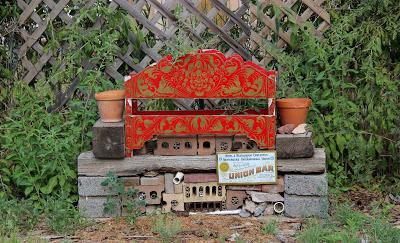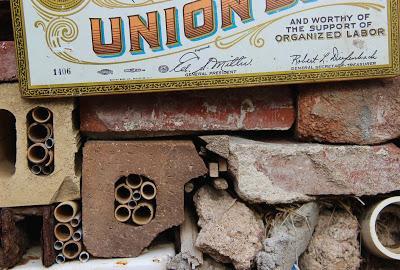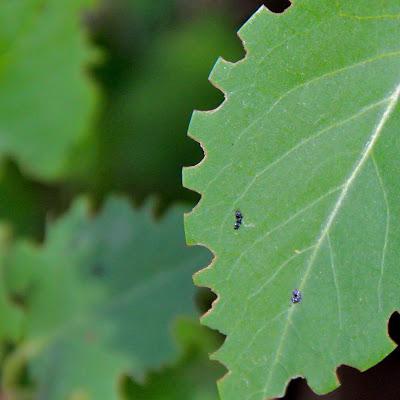 I’m thrilled that my lilacs have scalloped leaves. It means leafcutter bees are building nurseries, where their eggs will overwinter (and the bees don’t hurt the bushes).
I’m thrilled that my lilacs have scalloped leaves. It means leafcutter bees are building nurseries, where their eggs will overwinter (and the bees don’t hurt the bushes).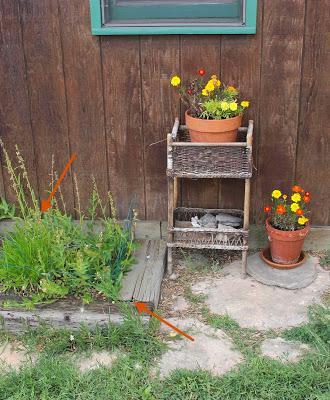
Arrows point to bee hangouts.
This year a leafcutter bee is using the same crack in a railroad tie that served as a nursery last year. Females live on the order of two months according to the leafcutter bee fact sheet, so this can’t be the same bee. Is it one of her offspring? Did it hatch in this crack – where it's now laying its own eggs? What about its siblings?I sat close by and watched for about 15 minutes, apparently no bother to the bee. She arrived with a neatly-cut piece of leaf, entered the crack, and emerged in less than a minute, I presume having installed a leafy partition after laying an egg. Then she disappeared for roughly four minutes before returning. She buzzed past my head each time, a signal to focus the camera.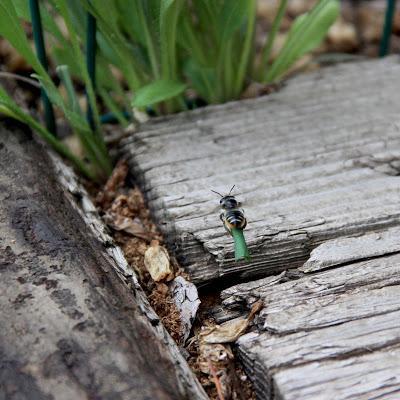
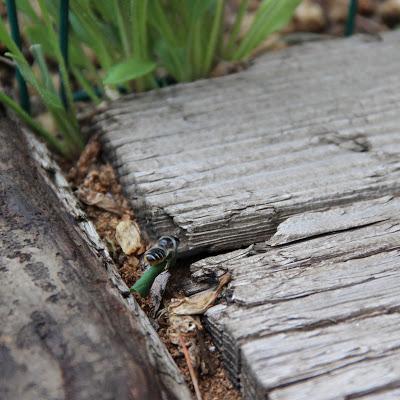
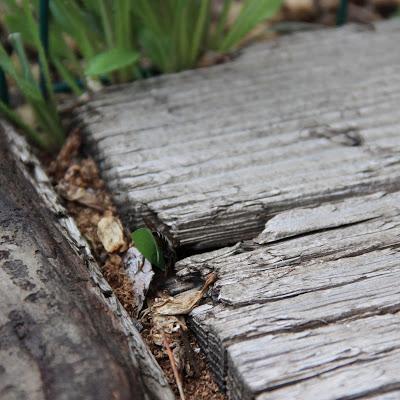
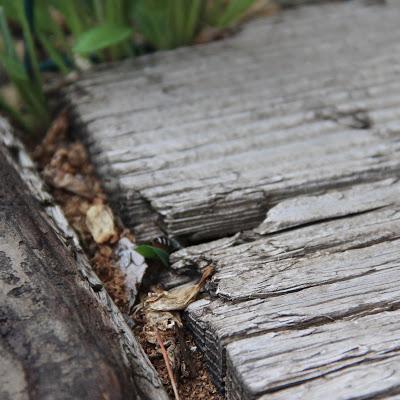
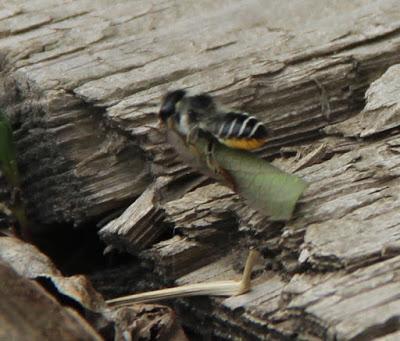
Is this Mom? ... last year's bee with something other than lilac leaf.
This year’s leafcutter buzzed off around the north side of the house – shortest route to the lilac bushes – and came back the same way, in just four minutes. So I checked the lilacs. Indeed, several were loaded with scalloped leaves. This bee is more efficient.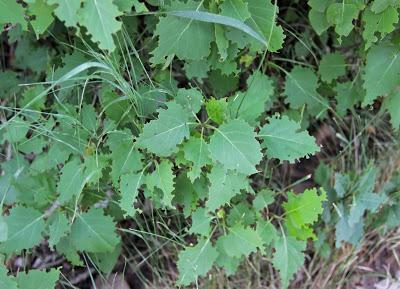
There are bee nibbles galore this year.
While waiting for the leafcutter, I noticed another bee entering a cavity behind the board at the base of the siding – with no leaf fragments. It looked like one of the solitary bees that are so common in the yard. I believe it went in with yellow pollen on its legs, and left without. But this was a quick bee! I couldn’t be sure.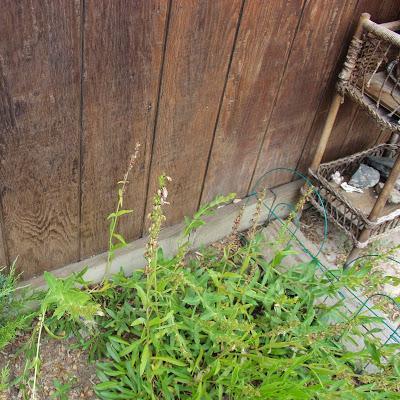
Another bee nursery? (behind baseboard)
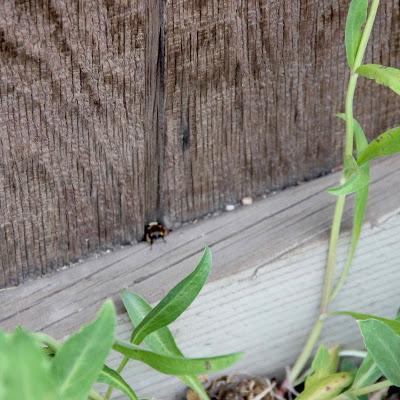
In she goes … with yellow wads of pollen on her legs? (click on image to view)
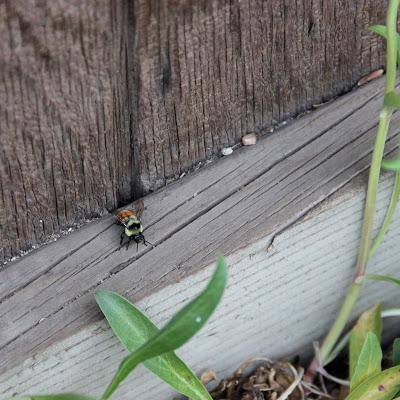
Out she comes … the yellow things are gone.
